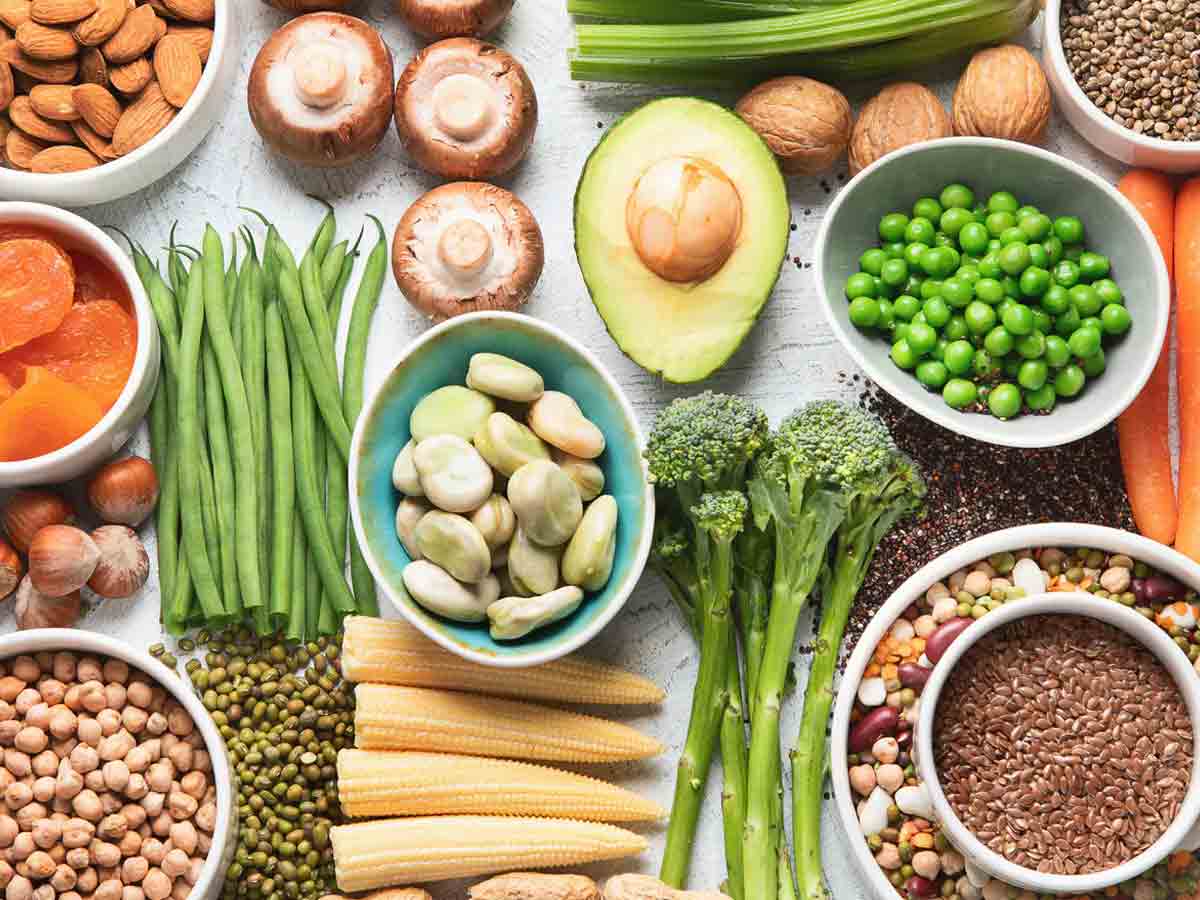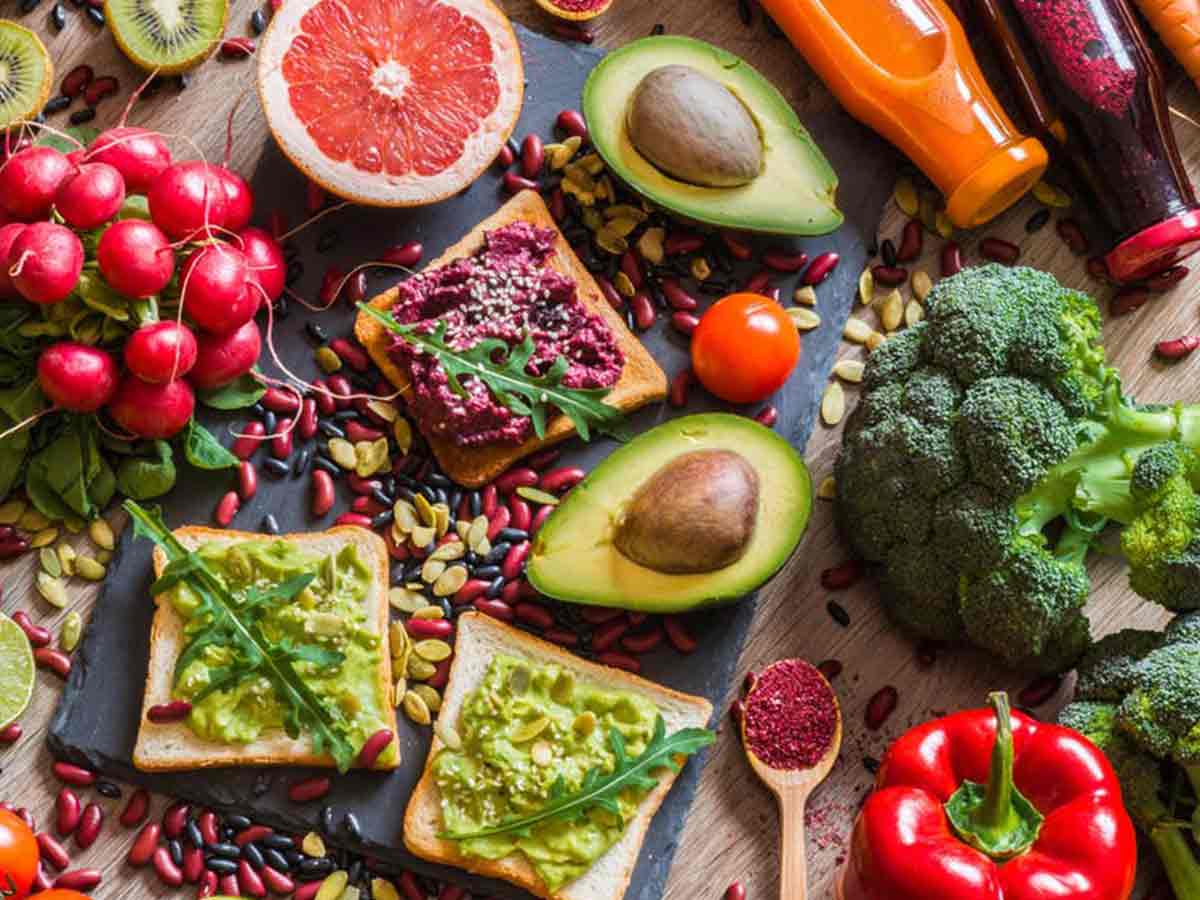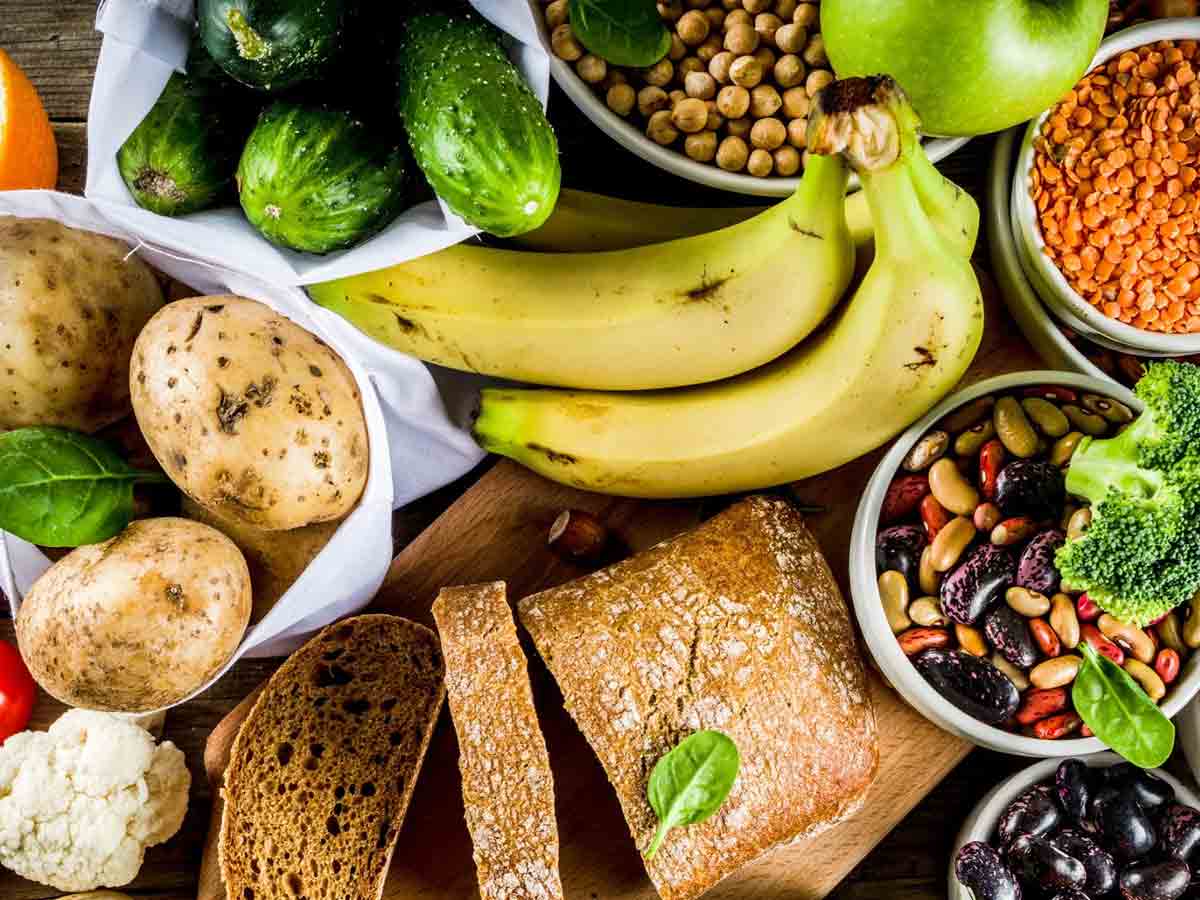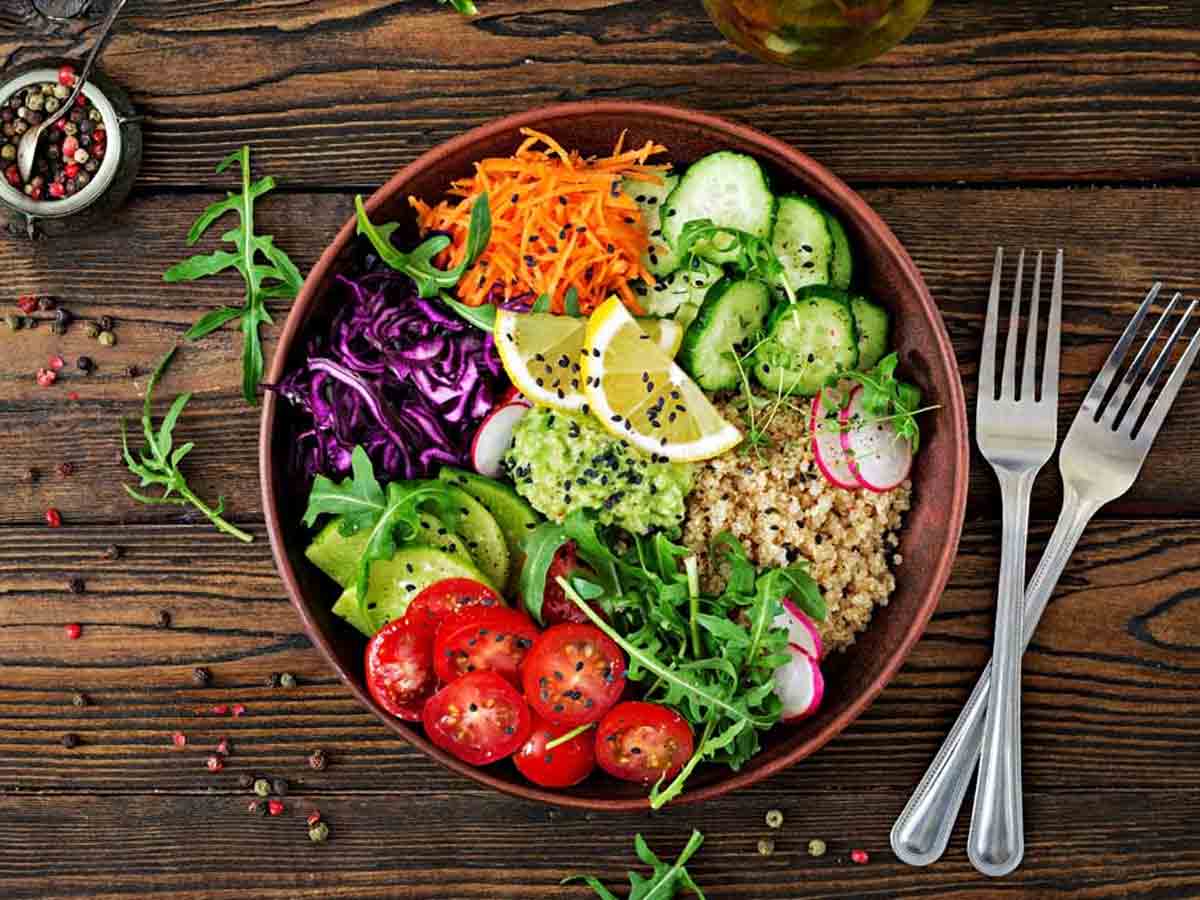In today’s Era, food has become much more than a source of nutrition. For many individuals, it can be making a statement of who they are, what they stand for, and mirroring their overall belief system, whether you choose to become non-vegetarian, vegetarian, or vegan regardless of ethics convictions, religious beliefs. The most crucial thing is to get a healthy diet. A good diet results in improving your well-being, enhance metabolism and increases life expectancy.

Your food in the Vegan diet must…
Vegan diets are typically rich in fiber, vitamin C, vitamin E, folic acid, potassium, magnesium. They have low saturated fats and cholesterol. People who try a vegan diet have lower BMI (Body mass index) and are generally thinner, and have lower type two diabetes rates. If you decided to follow a vegan diet. It is essential to ensure that diet must have adequate nutrition.
Ensure adequate protein
Protein is the most important source for building muscle and helps in the growth of tissue fiber. Significantly helps in losing weight. It helps us in remaining full for an extended period after the meal. For Non-vegetarians, it’s easy to fulfill the daily requirement of protein from animal products, so replacing these food items with a plant-based diet. These include whole grains, beans, lentils, chickpeas, soy products, Quorn products, nuts, and seeds. All these food mentioned above must be added 1-2 times per day to ensure proper nutrition for daily routine activities.
Enough amount of calcium
Calcium is an important source required and involved in some of the body systems. Mostly it is well known for skeleton working. An adequate amount of calcium is necessary to maintain bone density.
The prime source of calcium is Dairy products like milk, paneer, and curd. But the Vegan diet excludes animal products and dairy products. However, there is numerous plenty of different food that you can add to your modern diet. Calcium can be obtained in green leafy veggies, broccoli, nuts, tofu, almond butter, soy, yogurt, and seeds.
Also Read, Vegetarian Foods That Can Help You Gain Muscles
Ensure sufficient amount of Iron
Vegan and Vegetarian diets are at a huge risk of developing iron deficiency as Meat is the most available iron source. Research has proved that animal products Contain most Iron as compare to a vegan diet. So the question arises in which vegan food can be added in this modern Era to fulfill the iron requirement. It includes fresh fruits like Apple, fortified cereals, dark green leafy vegetables. Dried fruits can contain six times more Iron. You must add this to your diet to fulfill your daily requirement.

How to add Vitamins and Zinc to Your vegan Diet
Vitamins are essential for the Nervous system. Lack of vitamins creates throughout an extensive period, so guarantee you’re getting enough of it from the beginning. Significantly, kids and adolescents are not put in danger f B12 inadequacy. This can prompt detachment, inability to flourish, and large scale cystic paleness. The best wellsprings of B12 for veggie lovers are sustained items (soy and rice milk, breakfast oats). No plant-based nourishments are a dependable wellspring of the fundamental nutrient, and by and large, supplementation is essential. Invigorated flavorful yeast pieces are an incredible wellspring of nutrient B12. They can be found in well-being food stores and on the web. Exquisite yeast drops taste impossible with cereal and avocado.
Zinc is highly found in Meat and shellfish, but vegan can ensure that they fulfill it from Whole grains, nuts, kidney beans, and Black-eyed peas.
Omega 3 in Vegan diet
The diet that Doesn’t contain eggs, seafood, and chicken also are deficient in Omega 3 fatty acids. Which is a good source of energy, and even play an essential role in cardiovascular health as well eyes, and brain function
Plant-based sources of omega 3 can be ALA (Alpha-linolenic acid) can be used by the body as EPA and DHA. However, vegan can meet their EPA and DHA needs by regularly taking ALA such as linseeds, Walnuts, chia seeds, canola oil, and soy products. You can also take DHA-rich microalgae supplements.

Nourishments to consistently highlight in a veggie lover diet include:
entire grains, for example, wheat items (bread, pasta, couscous), rice and rice items, oats, corn, rye, grain, millet, and quinoa,
vegetables, for example, beans (kidney, spread, cannellini, comprehensive), chickpeas, lentils,
nuts, for example, cashews, almonds, pecans, walnuts, brazil nuts, peanuts, and so on – eat them entirely or utilize their spreads and oils,
seeds, for example, linseeds, sesame seeds, pumpkin seeds, sunflower seeds, chia seeds,
soy-based items, for example, soy milk, soy yogurt, tofu, and tempeh,
Quorn items, natural product that can be new, dried, or frozen, and
vegetables that can be new, canned, or frozen.
Savor suggestions vegan diet include:
Drinking a lot of water as well as tea,
Restricting sweet beverages like soft drinks and natural product juices,
Drinking smoothies that are effortlessly improved with a natural product,
Savoring espresso control (under 2-3 every day),
Guaranteeing that your liquor decision is the veggie lover.

Supplements that can be used by Vegans
it is highly recommendable that vegan should add vitamin B12 supplement, it is highly recommendable if you are not able to cover the daily requirement of calcium Omega 3 and vitamin D make sure you take some supplements to cover up nutrients
Eating out from restaurants.
Many restaurants and shops now offer vegan food if going for some outing or dinner party. there is now an option available in this modern world, or there are restaurants that provide only Vegan food
























